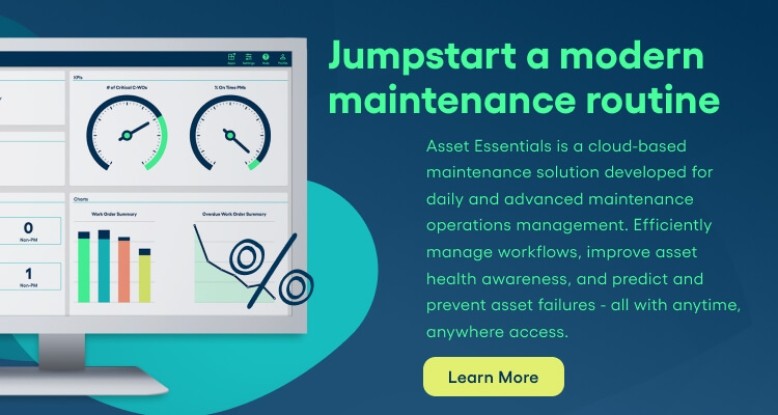Improving Operations & Controlling Costs with CMMS – How to Get Executive & Team Buy-In

In my many years helping yet-to-be clients understand the importance of CMMS (computerized maintenance management system), one of the most common questions is “what does it cost?”. I completely understand that budgets are tight – especially in this uncertain pandemic era. “Cost” is always a valid question but should never be viewed as a single number. ROI (return on investment) or “value” is a much better way to look at it.
Let’s look at it the wrong way first:
- “How much does your CMMS cost?” asks the maintenance operations professional
- “$5,000” says the CMMS partner
- “No way I’ll get approval for that!” says the maintenance operations professional
The whole concept of simply looking at cost is flawed. Maintenance professionals have many challenges that drive up operational costs and, if a for-profit organization, hurt profitability. A CMMS can seriously help you and your team – especially in these few areas:
- Avoid prematurely failing assets
- Improve inefficient teams
- Avoid spare-part stock-outs
- Assist with compliance issues
CMMS empowers maintenance professionals to have a better running and efficient facility – so how do you prove that to your team and executives?
Reactive vs. preventive operations
Organizations that are constantly reacting to maintenance issues as opposed to a more preventive environment have higher related maintenance costs. Corrective maintenance work orders are more expensive than preventive ones (PMs) – in the short- and long-term.
Here is how that plays out:
- “What is your current ratio of preventive/corrective maintenance work orders?” asks CMMS partner
- “20% preventive, 80% corrective” says maintenance operations professional
- “What is your average cost preventive/corrective maintenance work orders?” asks CMMS partner
- “$50 for preventive and $400 for corrective” says maintenance operations professional
- “Would your management approve saving $12,500 after acquiring a CMMS?” responds CMMS partner
The formula is relatively easy. Assuming the organization does approximately 1,000 work order per year, if the organization moved from a 20% PM to a 25% PM, they would save $12,500 after acquiring the CMMS. And this is just the start – the goal should be a much better ratio, more like 80% PM. The cost savings and resulting profitability for appropriate organizations goes up significantly.
Moving to a more proactive/preventive maintenance environment is significantly aided by a well-implemented CMMS.
Moving from a reactive or “firefighting” mode to a more predictable, proactive and controlled atmosphere not only helps control costs but promotes a safe environment and improves morale.
CMMS = controlled costs
There are many other places CMMS will control costs, make you more efficient and ultimately more profitable – far outweighing the costs to acquire the CMMS.
Some examples:
- Reducing unplanned downtime of your assets/equipment
- Minimizing stock-outs (missing a critical spare part for a work order when you need it most)
- Optimizing your team – have the right person for the right job at the right time
- For manufacturers, better quality production – reduce scrap and rework
- Stretch the life out of your assets and facilities by avoiding costly capital expenses replacing or overhauling prematurely aged equipment
- Helping document and enact compliance and safety initiatives
Speed and simplicity of implementation
A common additional hurdle is “I don’t have time to implement a CMMS.” It is true that you must budget both funds and time to implement, but like the above example, the investment pays off handsomely.
A quality CMMS vendor can use their services to make the implementation go quickly and easily. A combination of goals/objectives analysis, data migration and training will ensure that the team understands and adopts the solution in a timely manner.
Learn more about our 3-step implementation process.
Finding budget is always a challenge, especially in these tougher pandemic-impacted economic times. The key is to shift from thinking of the CMMS cost and focus on the value and resulting reduced maintenance-related costs.
The math is easy, and the payoff is typically quick. Those improvements you make to your operations will ripple and grow as you let your CMMS become more ingrained in your operations, growing that value and resulting profitability.





